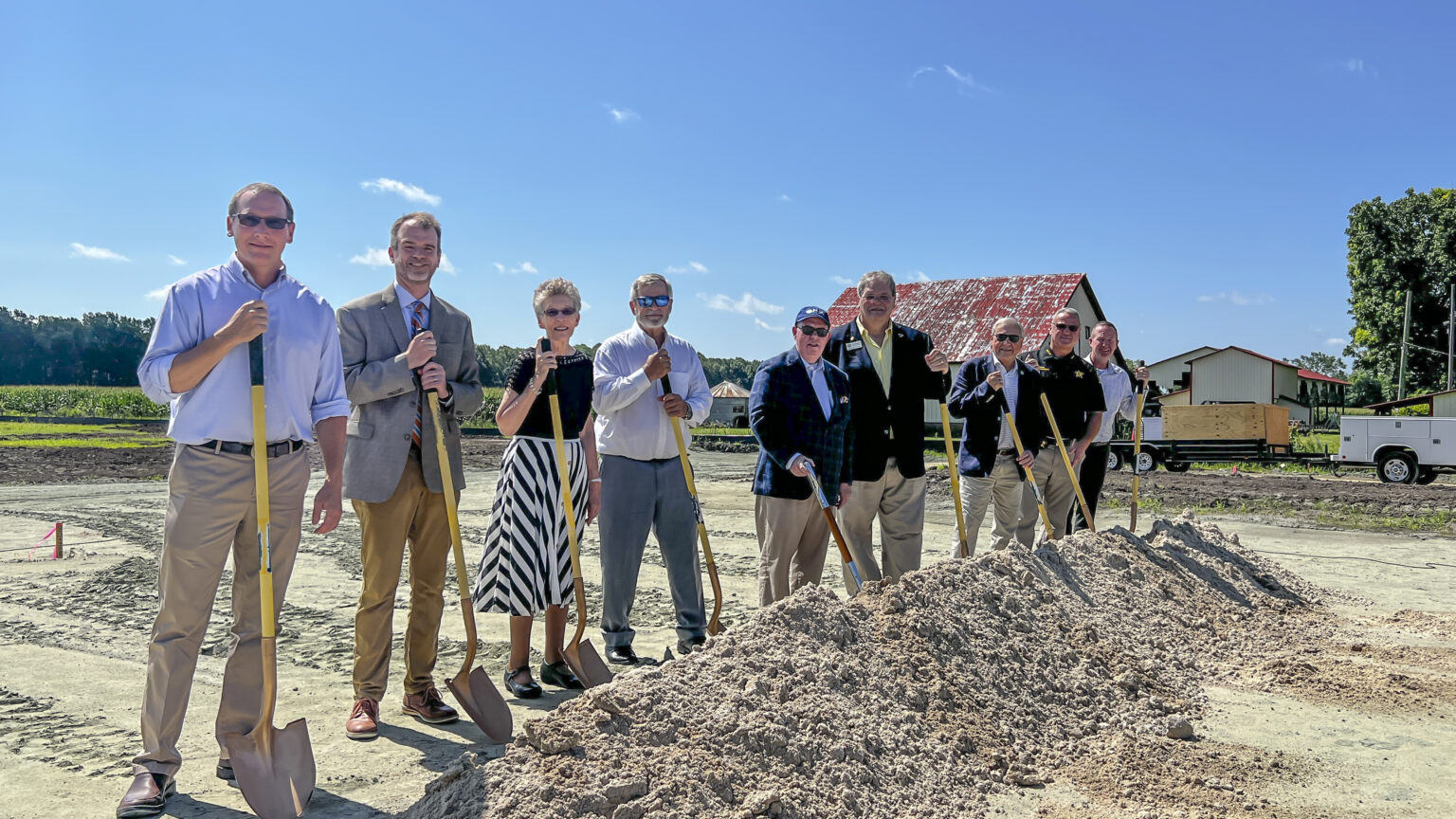What started as a vision to boost the economy in the rural town of Aurora has resulted in a new industrial park with jobs on the way.
On June 19, the Town of Aurora and Beaufort County Community College broke ground on the Aurora Industrial Park and the college’s only satellite campus, which will be located within the park.
“The first thing we had to have was a strategic plan,” said Aurora Mayor Clif Williams. “A lot of people don’t realize that if you’re going to seek funding, especially from government institutions or foundations like Golden LEAF, you have to show them you have a model for success. We have an outstanding strategic plan.”
Building the Foundation
In 2019, the Golden LEAF Foundation Board of Directors awarded $200,000 to the Town of Aurora to construct public water, sewer, and road infrastructure for the 51-acre Aurora Industrial Park. The town purchased the site with a $450,000 loan from Beaufort County, secured by pre-sales to businesses that will locate in the park.
Aurora is home to Nutrien, a major employer that operates a phosphate mine in the area. Many of the businesses interested in the park will be associated with the mining operation, including contractors currently working on smaller parcels with limited capacity. When fully built out, the park will accommodate offices, laydown yards, fabrication, and repair facilities for these businesses and more.
Workforce Development and Education
In 2023, the Golden LEAF Board awarded an additional $500,000 to the Town of Aurora to support infrastructure for an industrial training facility. The $2.7 million project was developed in collaboration with Beaufort County Community College, the Town of Aurora, and Nutrien. The satellite campus is the college’s first facility constructed on land not directly connected to its main campus.
Through the new campus, Beaufort County Community College will offer ongoing, customized training for local employers and residents across Beaufort, Hyde, Tyrrell, and Washington counties.
“The classes the center will offer at the Aurora location include industry training, college and career readiness, human resource development, EMS, and fire and emergency management,” said Dr. Stacey Gerard, Vice President of Continuing Education at the college. “We truly appreciate the ongoing support of the Golden LEAF Foundation, which helps make these opportunities possible for our community.”
Dr. Gerard added that the latest timeline projects the building will be ready for occupancy in the first quarter of 2026.
Overcoming Obstacles
The project was years in the making and encountered several setbacks, said Mayor Williams.
“Our biggest drawback was the pandemic, which set us back both financially and on our timeline for completion,” he said. “The cost of everything went up. What started as a $1.2 million project is going to finish at just over $5 million.”
Outdated water and sewer systems also caused delays and required additional funding and project modifications.
“I’ve stayed in contact with everyone, attending meetings in Raleigh and Rocky Mount, keeping everybody informed of progress and setbacks,” said Mayor Williams. “Every time we turned around, project costs kept rising. We had to make modifications, including raising the cost of the real estate, but we still showed our funders we could bring in contractors and get this done.”
Mayor Williams shared that two businesses are in final discussions about locating in the industrial park.
“Between those two companies,” said Mayor Williams, “we’re looking at creating about 50 to 60 jobs.”
Funding Secured
In addition to funding from Golden LEAF, the town secured $1.25 million from the North Carolina Department of Commerce Industrial Development Fund to support road and utility construction. The college’s satellite facility also received $2.5 million through a State Capital and Infrastructure Fund Directed Grant from the North Carolina General Assembly. Nutrien contributed $100,000 for training equipment.
This project aims to jumpstart regional workforce development and revitalize Aurora’s economy through strategic public-private investment, improved infrastructure, and new jobs.

